Why Are Heirloom Seeds Important for Eco-Friendly Farming?
In recent years, the conversation around sustainable agriculture has gained significant momentum, and one of the shining stars in this movement is heirloom seeds. But why exactly are these ancient seeds so crucial for eco-friendly farming? To put it simply, heirloom seeds are not just a relic of the past; they are a treasure trove of biodiversity and resilience that can transform our agricultural practices today. Imagine walking through a garden filled with vibrant colors, unique shapes, and diverse flavors—all thanks to these remarkable seeds. They represent a time when farming was about variety, flavor, and sustainability, rather than uniformity and mass production.
Heirloom seeds, often passed down through generations, are open-pollinated varieties that have been cultivated for their unique characteristics. This means that they can be saved and replanted year after year, creating a self-sustaining cycle that is vital for eco-friendly farming. Unlike hybrid seeds, which often require purchasing new seeds each season, heirloom seeds empower farmers to maintain their own seed supply, reducing dependency on commercial seed companies. This independence is not just about economics; it's about preserving our agricultural heritage and ensuring that we have a diverse range of crops that can adapt to changing climates and pests.
Moreover, heirloom seeds play a pivotal role in promoting biodiversity. When farmers choose to plant these seeds, they contribute to a wider genetic pool, which is essential for a resilient ecosystem. Think of it this way: a diverse garden is like a well-balanced diet for the planet. Just as we need various nutrients to stay healthy, our ecosystems require a variety of plants to thrive. Heirloom seeds help maintain this balance, ensuring that we have crops that can withstand diseases, pests, and the ever-changing climate.
But the benefits of heirloom seeds extend beyond biodiversity. They are also known for their superior flavor and nutritional content. Have you ever bitten into a juicy heirloom tomato and savored its rich, complex taste? It's a far cry from the bland, uniform varieties often found in grocery stores. This exceptional flavor is not just a culinary delight; it also translates to better nutrition for consumers. Heirloom varieties are often packed with vitamins and minerals, making them a healthier choice for families.
In summary, heirloom seeds are essential for eco-friendly farming because they promote biodiversity, provide resilience against environmental challenges, and offer superior taste and nutrition. They are not merely seeds; they are a symbol of sustainable agriculture, representing a shift away from industrial farming practices towards a more holistic approach that respects both the land and the communities that depend on it. By choosing heirloom seeds, we are not just planting crops; we are sowing the seeds of a more sustainable future.
- What are heirloom seeds? Heirloom seeds are open-pollinated varieties that have been passed down through generations, known for their unique characteristics and ability to be saved and replanted.
- Why are heirloom seeds better for the environment? They promote biodiversity, require fewer chemical inputs, and help preserve genetic diversity, all of which contribute to a more sustainable agricultural ecosystem.
- Can I save heirloom seeds for next year? Yes! One of the key benefits of heirloom seeds is that they can be saved and replanted, allowing farmers to maintain their own seed supply.
- How do heirloom seeds compare to hybrid seeds? Heirloom seeds are open-pollinated and can be saved for future planting, while hybrid seeds are often bred for specific traits and typically require purchasing new seeds each season.
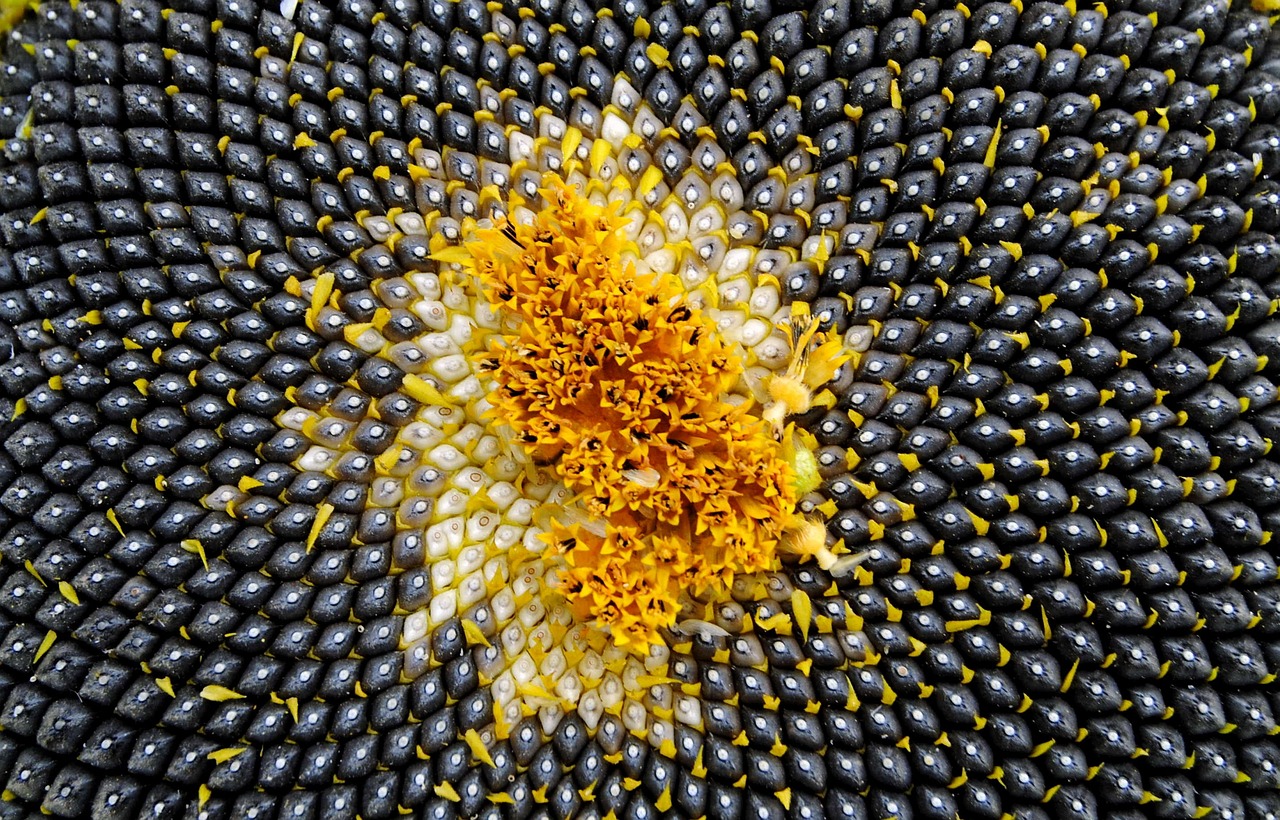
The History of Heirloom Seeds
This article explores the significance of heirloom seeds in sustainable agriculture, their benefits for biodiversity, and how they contribute to eco-friendly farming practices.
Understanding the origins of heirloom seeds provides insight into their resilience and adaptability, showcasing their role in traditional agriculture and the preservation of genetic diversity. Heirloom seeds are varieties that have been passed down through generations, often within families or communities, due to their unique characteristics and flavors. These seeds typically have a history of cultivation that spans at least 50 years, making them a vital part of our agricultural heritage.
Historically, heirloom seeds were the backbone of local farming systems, cultivated by farmers who understood the importance of maintaining a diverse gene pool. In many cultures, these seeds were not just a means of food production but also a symbol of cultural identity and community resilience. For instance, in the Americas, indigenous populations cultivated a variety of crops, each adapted to their specific environment and climate. This traditional practice helped ensure food security and agricultural sustainability long before the advent of modern farming techniques.
As industrial agriculture began to dominate in the mid-20th century, many heirloom varieties fell out of favor. The rise of hybrid seeds, which promised higher yields and uniformity, led to a significant decline in the cultivation of heirloom seeds. However, this shift came at a cost—many unique varieties were lost, taking with them valuable genetic traits that could have contributed to agricultural resilience.
In recent years, there has been a resurgence of interest in heirloom seeds, driven by a growing awareness of the importance of biodiversity in agriculture. Farmers and gardeners alike are recognizing that heirloom varieties offer not only superior flavors but also the ability to adapt to local conditions, making them a crucial component of sustainable farming practices.
Moreover, the preservation of heirloom seeds is now seen as a critical strategy for combating the challenges posed by climate change. As environmental conditions shift, heirloom varieties may hold the key to developing crops that can thrive in new climates, ensuring food security for future generations.
In summary, the history of heirloom seeds is a rich tapestry of cultural significance, agricultural innovation, and resilience. By understanding their origins and the role they play in sustainable farming, we can appreciate why heirloom seeds are not just a relic of the past but a vital resource for the future.
Heirloom seeds offer numerous advantages, including superior flavor, nutritional value, and resistance to pests, making them a vital choice for sustainable farming practices.
Heirloom seeds contribute to agricultural biodiversity, ensuring a resilient ecosystem that can withstand pests, diseases, and climate change, thus promoting sustainability in farming.
By cultivating heirloom varieties, farmers help preserve a wide range of genetic traits, which is essential for adapting to changing environmental conditions.
Heirloom seeds often require fewer chemical inputs, promoting environmentally friendly farming practices that benefit soil health and reduce pollution.
Many heirloom varieties are known for their exceptional taste and higher nutritional content, making them a preferred choice for both farmers and consumers.
Despite their benefits, heirloom seeds face challenges such as market accessibility and competition with hybrid varieties, which can threaten their cultivation and availability.
Limited access to markets can hinder the growth of heirloom seed varieties, impacting farmers' ability to profit from their cultivation and maintain these important seeds.
Raising awareness about the benefits of heirloom seeds is crucial for encouraging farmers and consumers to choose these varieties, fostering a more sustainable agricultural landscape.
- What are heirloom seeds? Heirloom seeds are traditional varieties that have been passed down through generations, valued for their unique characteristics and flavors.
- Why are heirloom seeds important? They promote biodiversity, offer superior taste and nutrition, and help maintain genetic diversity in agriculture.
- Can I grow heirloom seeds in my garden? Absolutely! Heirloom seeds can be grown in home gardens and are often more resilient to local conditions.
- Are heirloom seeds better for the environment? Yes, they often require fewer chemical inputs and promote sustainable farming practices.
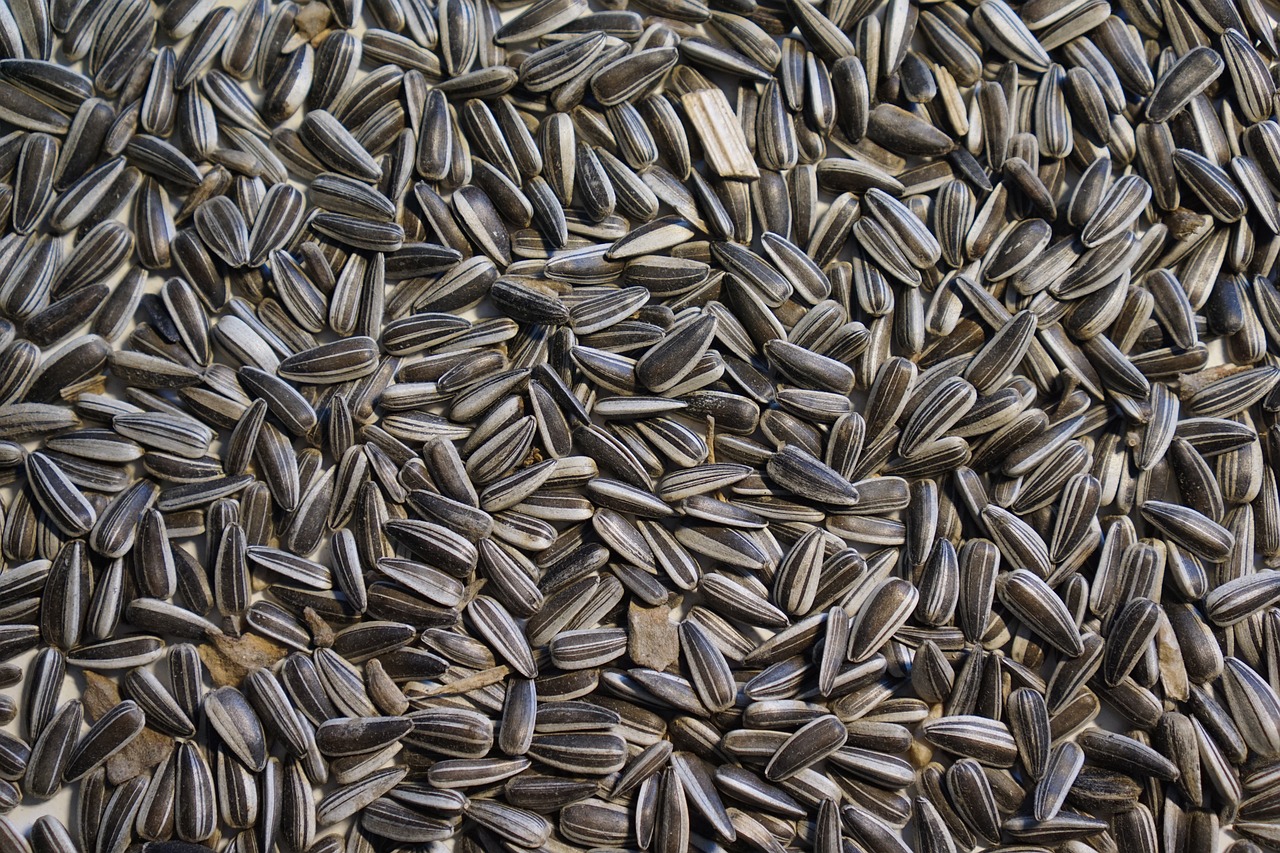
Benefits of Heirloom Seeds
Heirloom seeds are not just your ordinary seeds; they are a treasure trove of agricultural benefits that can transform sustainable farming. One of the most compelling reasons to choose heirloom seeds is their **superior flavor**. Imagine biting into a juicy heirloom tomato, bursting with flavor that makes store-bought varieties taste bland in comparison. This exceptional taste is a result of generations of selective breeding, where farmers have prioritized flavor over uniformity. In addition to their delightful taste, heirloom seeds are often packed with **nutritional value**. Studies have shown that many heirloom varieties contain higher levels of vitamins and minerals, making them not just delicious but also a healthier choice for consumers.
Moreover, heirloom seeds exhibit remarkable **resistance to pests** and diseases. Unlike many modern hybrids that may require extensive chemical treatments, heirloom varieties have adapted over time to thrive in their environments, often developing natural defenses against pests. This resilience not only reduces the need for harmful pesticides but also contributes to a healthier ecosystem. By choosing heirloom seeds, farmers can cultivate crops that are better suited to their local conditions, leading to a more sustainable farming practice.
Another significant benefit of heirloom seeds is their role in promoting **biodiversity**. In a world where monoculture farming practices dominate, heirloom seeds serve as a vital countermeasure. They come in an array of shapes, sizes, and colors, which helps create a more diverse ecosystem. This diversity ensures that crops can withstand various challenges, including climate change and pest outbreaks. When farmers plant a variety of heirloom seeds, they not only secure their own harvests but also contribute to the overall health of the agricultural landscape.
Heirloom seeds also play a crucial role in the **preservation of genetic diversity**. With the rapid loss of traditional seed varieties, cultivating heirloom seeds helps maintain a wide range of genetic traits. These traits are essential for adapting to changing environmental conditions, ensuring that future generations have access to a diverse pool of seeds. This is particularly important as we face the challenges posed by climate change, where adaptability could mean the difference between a successful harvest and a failed one.
Furthermore, heirloom seeds often require fewer chemical inputs, making them a more **environmentally sustainable** choice. By reducing the reliance on synthetic fertilizers and pesticides, farmers can improve soil health and minimize pollution. This not only benefits the immediate farming environment but also contributes to the overall health of our planet. In essence, choosing heirloom seeds is a step towards a more sustainable future, where agriculture harmonizes with nature rather than fights against it.
In summary, heirloom seeds are a vital component of sustainable agriculture, offering benefits that extend beyond the farm. From their rich flavors and nutritional advantages to their contributions to biodiversity and environmental sustainability, heirloom seeds are a choice that supports both farmers and consumers alike. By embracing these seeds, we are not just preserving the past; we are also planting the seeds for a healthier, more sustainable future.

Biodiversity and Resilience
Biodiversity is the backbone of any healthy ecosystem, and when it comes to agriculture, heirloom seeds play a pivotal role in enhancing this biodiversity. These seeds, often passed down through generations, are not just relics of the past; they are living examples of the resilience that nature can offer. By cultivating heirloom varieties, farmers contribute to a diverse gene pool that can adapt to changes in climate, pests, and diseases. Imagine a garden filled with a rainbow of tomatoes, each with its unique flavor and texture—this diversity not only makes our plates more colorful but also strengthens our agricultural systems.
Heirloom seeds are known for their ability to thrive in various conditions, making them a vital asset in the face of environmental challenges. For instance, some heirloom varieties have developed natural resistance to specific pests and diseases, reducing the need for chemical interventions. This is akin to having a natural defense system; just as a diverse group of people brings different strengths to a team, a variety of plant species can withstand threats more effectively. In fact, studies have shown that farms with higher biodiversity tend to be more resilient against climate fluctuations and other stressors.
Moreover, the cultivation of heirloom seeds helps to maintain genetic diversity, which is crucial for the long-term sustainability of our food systems. When farmers grow a wide range of heirloom crops, they are essentially preserving a library of genetic traits. This genetic diversity is like a safety net; if one variety fails due to disease or climate change, others may still thrive. This concept is particularly important as we face the realities of a changing climate. By investing in heirloom seeds, we are not just preserving the past; we are ensuring a more secure and sustainable future for our food sources.
In addition to their ecological benefits, heirloom seeds often come with fascinating stories and cultural significance. Each variety has its own history, often tied to specific regions or communities. This connection to our agricultural heritage fosters a sense of responsibility and stewardship among farmers and consumers alike. By choosing heirloom seeds, we are voting for a more resilient and sustainable agricultural future, one that honors the past while looking forward to the challenges ahead.
- What are heirloom seeds? Heirloom seeds are open-pollinated varieties that have been passed down through generations, known for their unique characteristics and resilience.
- Why are heirloom seeds important for biodiversity? They contribute to a diverse gene pool, enhancing ecosystem resilience against pests, diseases, and climate change.
- How do heirloom seeds promote sustainability? They often require fewer chemical inputs and help maintain soil health, leading to more eco-friendly farming practices.
- Can heirloom seeds be grown in all climates? While many heirloom varieties are adaptable, it's essential to choose seeds suited to your specific climate and soil conditions.
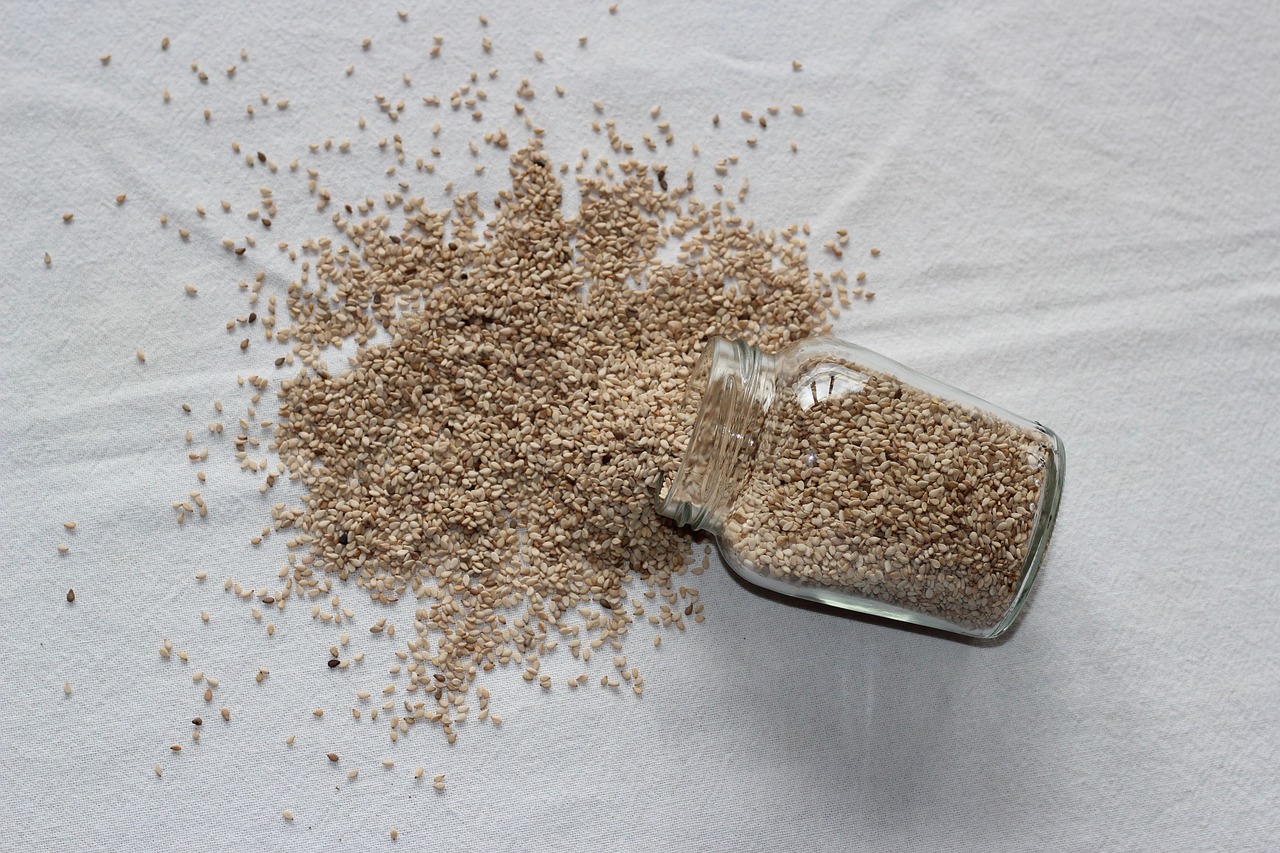
Preservation of Genetic Diversity
The through heirloom seeds is not just a noble endeavor; it's a necessity for the future of agriculture. Imagine a world where every crop is identical, lacking the unique traits that make them resilient. This scenario could lead to catastrophic failures in food production, especially in the face of pests, diseases, and climate change. Heirloom seeds, with their rich genetic makeup, act as a safety net, providing farmers with a variety of options to adapt to these challenges. By cultivating these seeds, farmers are essentially safeguarding a treasure trove of genetic traits that have been honed over generations.
One of the most compelling reasons to embrace heirloom seeds is their ability to thrive in diverse environments. Each heirloom variety carries unique characteristics that have been developed to survive specific local conditions, whether it be drought, heavy rainfall, or pest infestations. This adaptability is crucial in a world where climate patterns are increasingly unpredictable. For example, a farmer growing heirloom tomatoes may find that some varieties flourish in hot, dry conditions, while others might thrive in cooler, wetter climates. This diversity allows farmers to select the best-suited crops for their specific growing conditions, ensuring a more stable and resilient food supply.
Moreover, the cultivation of heirloom seeds not only benefits the farmers but also contributes to the overall health of the ecosystem. By planting a variety of crops, farmers can promote a more balanced ecosystem, which can help control pests naturally and reduce the need for chemical pesticides. In this way, heirloom seeds play a vital role in fostering a sustainable agricultural landscape that benefits both the environment and the community.
To illustrate the importance of genetic diversity, consider the following table that highlights some key differences between heirloom and hybrid seeds:
| Feature | Heirloom Seeds | Hybrid Seeds |
|---|---|---|
| Genetic Diversity | High | Low |
| Flavor | Superior | Variable |
| Nutritional Value | Higher | Often Lower |
| Adaptability | Excellent | Limited |
In summary, the preservation of genetic diversity through heirloom seeds is not just an agricultural practice; it is a critical component of ensuring food security and sustainability for future generations. By choosing heirloom varieties, farmers contribute to a resilient agricultural system that can adapt to the ever-changing challenges posed by nature. This commitment to diversity enriches our food systems, making them not only more sustainable but also more flavorful and nutritious.
- What are heirloom seeds? Heirloom seeds are traditional varieties that have been passed down through generations, known for their unique characteristics and resilience.
- Why are heirloom seeds important? They help preserve genetic diversity, offer superior flavors and nutritional value, and promote sustainable farming practices.
- Can I save seeds from heirloom plants? Yes, one of the great benefits of heirloom seeds is that they can be saved and replanted year after year.
- Are heirloom seeds better for the environment? Generally, yes! Heirloom seeds often require fewer chemical inputs and support biodiversity, contributing to a healthier ecosystem.
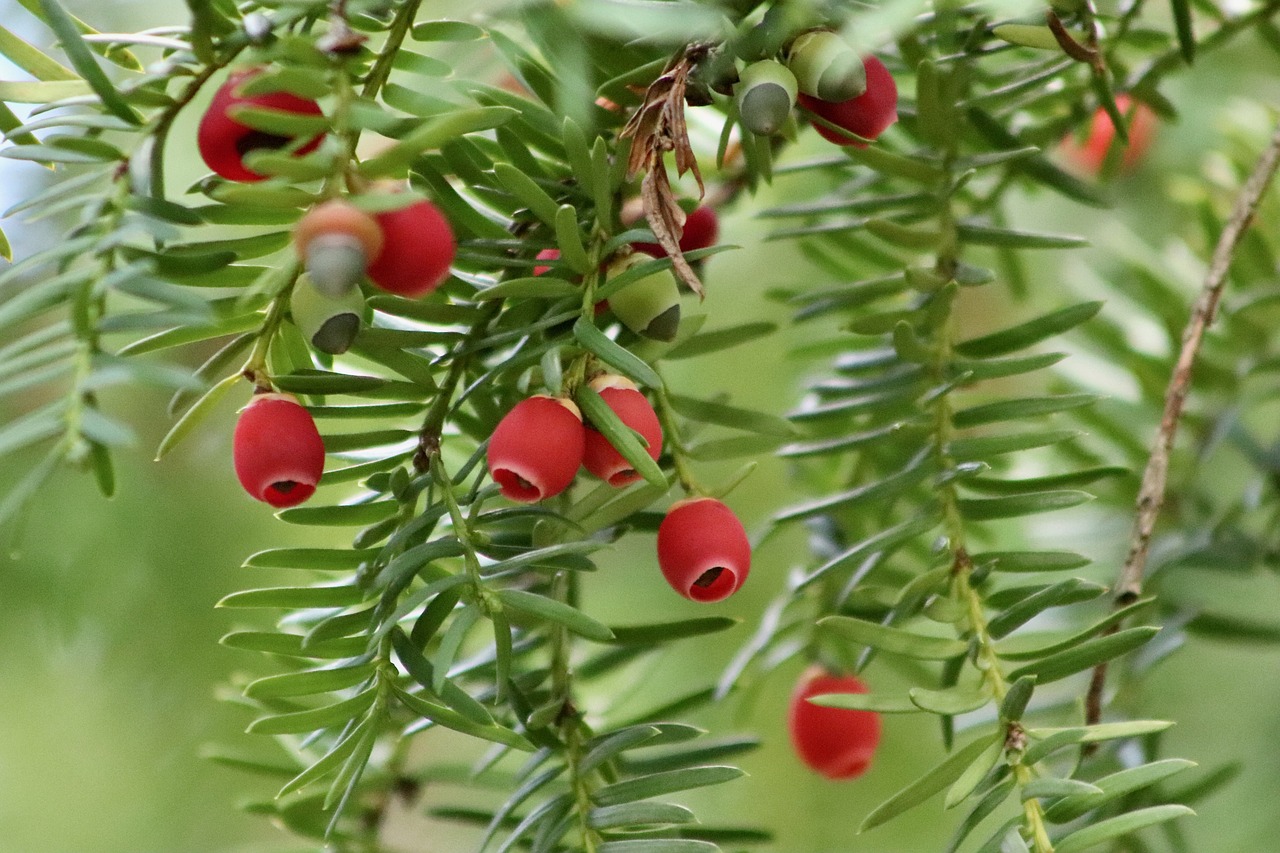
Environmental Sustainability
Heirloom seeds play a pivotal role in promoting within the agricultural sector. Unlike their hybrid counterparts, heirloom varieties are often hardier and require fewer chemical inputs, which is a significant advantage for both the environment and the farmer’s wallet. Imagine a garden where plants thrive without the heavy reliance on pesticides and fertilizers—this is the reality that heirloom seeds can help create. By utilizing these seeds, farmers can cultivate crops that are not only healthier for consumers but also for the planet.
One of the most remarkable aspects of heirloom seeds is their ability to adapt to local conditions over generations. This adaptability means they often require less water and are more resistant to local pests and diseases. When farmers choose to plant heirloom seeds, they are effectively reducing their ecological footprint. This is crucial in the face of climate change, where traditional farming practices can exacerbate environmental issues.
Furthermore, heirloom seeds contribute to the overall health of the soil. These varieties are typically more resilient and can help improve soil structure and fertility. They promote a diverse ecosystem that supports beneficial organisms, such as earthworms and pollinators, which are vital for a thriving agricultural environment. This not only leads to better crop yields but also ensures that the land remains productive for future generations.
In addition to their ecological benefits, heirloom seeds foster a sense of community among farmers. When local farmers grow and share these seeds, they create a network of knowledge and practices that enhance sustainability. This exchange of seeds and ideas can lead to the development of unique farming methods tailored to specific regions, further promoting environmental stewardship.
In summary, heirloom seeds are more than just a relic of the past; they are a beacon of hope for sustainable agriculture. By embracing these seeds, farmers can cultivate a more resilient and environmentally friendly farming ecosystem. The shift towards heirloom varieties is not just beneficial for the individual farmer but for the entire planet. So, the next time you’re at a farmer’s market or grocery store, consider the impact of your choices. Choosing heirloom produce is a step towards a more sustainable future.
- What are heirloom seeds? Heirloom seeds are open-pollinated varieties that have been passed down through generations, known for their rich flavors and unique characteristics.
- Why are heirloom seeds important? They promote biodiversity, support local agriculture, and often require fewer chemical inputs, making them better for the environment.
- Can I save seeds from heirloom plants? Yes! One of the benefits of heirloom seeds is that they can be saved and replanted, preserving the variety for future generations.
- Are heirloom seeds more nutritious? Many heirloom varieties are known for their superior taste and nutritional value compared to conventional hybrids.
- How can I find heirloom seeds? Heirloom seeds can be found at local farmers' markets, specialty garden centers, or through online retailers dedicated to sustainable agriculture.
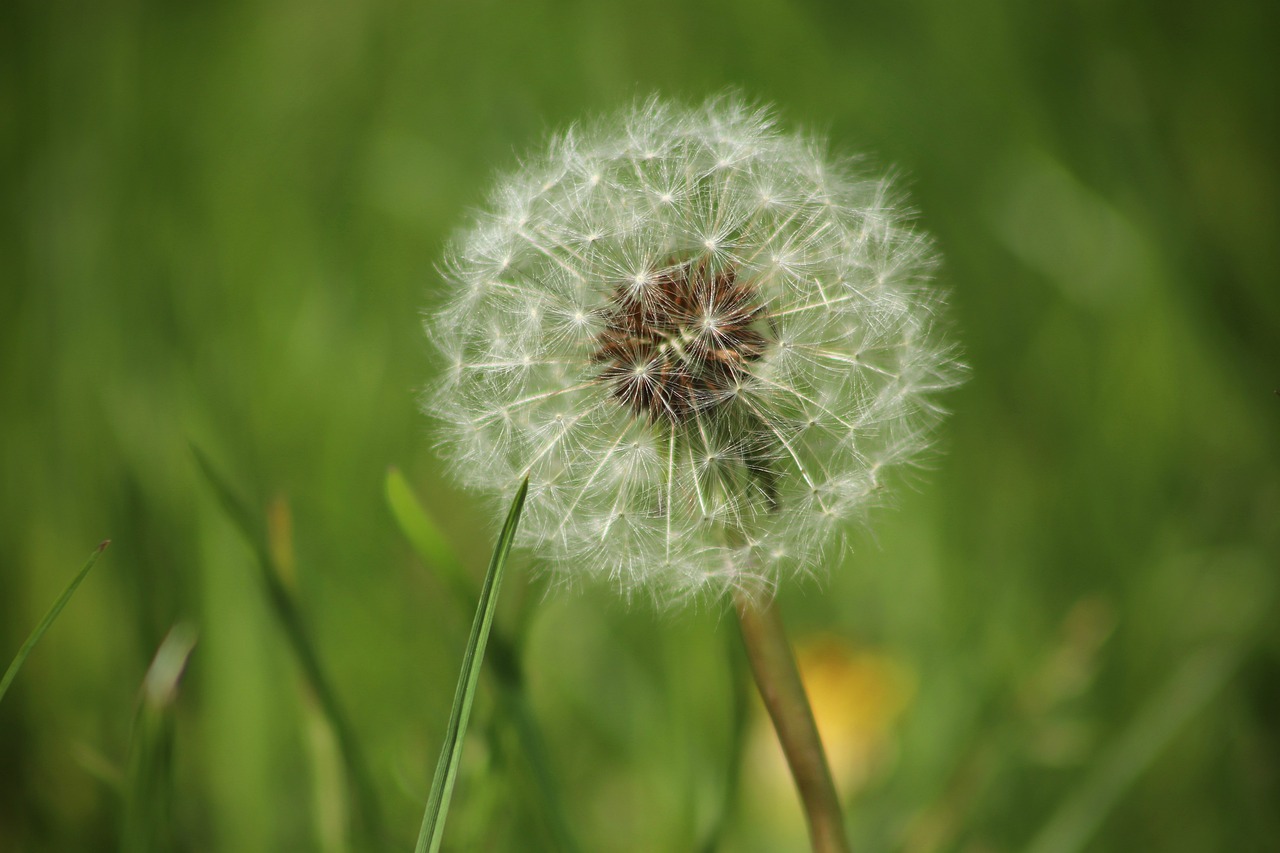
Flavor and Nutrition
When it comes to heirloom seeds, one of the most delightful aspects is the incredible flavor they bring to our plates. Imagine biting into a juicy, sun-ripened tomato that bursts with sweetness, or savoring the rich, earthy taste of a heritage carrot. These heirloom varieties have been cultivated for generations, often passed down through families, and they carry with them a depth of flavor that is simply unmatched by many modern hybrids. Why is that? Well, heirloom seeds are typically grown in a way that prioritizes taste over uniformity or shelf life, leading to produce that not only tastes better but is also more nutritious.
Research shows that heirloom varieties often boast a higher nutritional profile compared to their hybrid counterparts. For instance, many heirloom tomatoes are rich in antioxidants, vitamins, and minerals, which are essential for our overall health. The vibrant colors of heirloom vegetables are not just for show; they indicate the presence of beneficial phytonutrients that can help reduce the risk of chronic diseases. A study comparing the nutritional content of heirloom tomatoes with commercial varieties found that heirloom tomatoes contained significantly higher levels of vitamins A and C, as well as other valuable nutrients.
Moreover, heirloom seeds are often grown using organic or sustainable farming practices, which means they are free from harmful pesticides and chemicals. This not only enhances their flavor but also contributes to a healthier diet. When you choose heirloom produce, you are not just opting for better taste; you are also making a conscious choice for your health and the environment.
But let’s not forget the role of diversity in flavor and nutrition. Heirloom seeds come in an astonishing variety of shapes, sizes, and colors. This diversity means that when you grow heirloom crops, you can enjoy a wide range of flavors and textures. From the sweet, crisp bite of a heritage cucumber to the nutty richness of an ancient grain, each heirloom variety tells its own story through its unique taste. This is a far cry from the often bland and uniform produce found in supermarkets today.
In conclusion, heirloom seeds are not just important for their historical and ecological value; they are a treasure trove of flavor and nutrition. By choosing heirloom varieties, you are not only indulging your taste buds but also supporting a more sustainable and health-conscious food system. So next time you’re at the farmer’s market or grocery store, consider reaching for that heirloom produce. Your palate—and your body—will thank you!
- What are heirloom seeds? Heirloom seeds are open-pollinated varieties that have been passed down through generations, known for their unique flavors and genetic diversity.
- Why are heirloom seeds better for flavor? Heirloom seeds are often grown for taste rather than uniformity, resulting in produce with richer flavors and nutritional benefits.
- How do heirloom seeds contribute to sustainability? By preserving genetic diversity and requiring fewer chemical inputs, heirloom seeds promote environmentally friendly farming practices.
- Can I grow heirloom seeds at home? Absolutely! Heirloom seeds can be grown in home gardens, allowing you to enjoy fresh, flavorful produce.
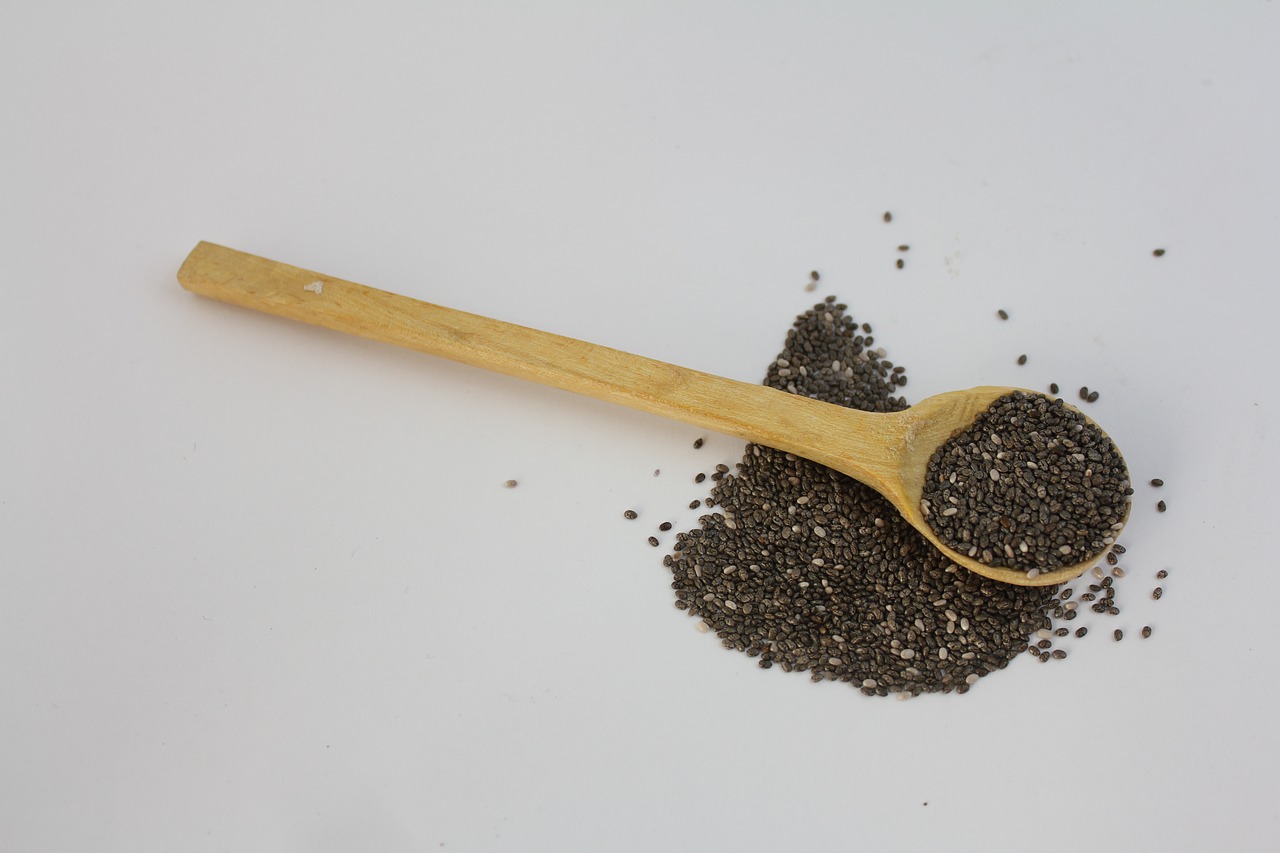
Challenges Facing Heirloom Seeds
Despite the numerous benefits that heirloom seeds offer, they are not without their challenges. One significant hurdle is market accessibility. Many farmers who wish to grow heirloom varieties often find it difficult to connect with markets that appreciate and pay fairly for these seeds. Unlike hybrid seeds, which are often backed by large agricultural corporations, heirloom seeds lack the same level of marketing support and distribution networks. This can lead to a situation where farmers are hesitant to invest time and resources into growing these varieties, fearing they won't be able to sell their produce at a profitable price.
Another challenge is the competition with hybrid varieties. Hybrid seeds are designed to maximize yield and often come with promises of disease resistance and uniformity. This can make them more appealing to commercial farmers who prioritize profit margins. The result? Heirloom seeds, with their unique flavors and characteristics, can be overshadowed in the marketplace. It's akin to the battle between a classic, artisanal cheese and a mass-produced version; while the former may have more depth and character, the latter often wins out due to its accessibility and marketing muscle.
Additionally, there is a pressing need for education and awareness surrounding heirloom seeds. Many consumers are simply unaware of the benefits these seeds provide, both in terms of flavor and environmental impact. Without a solid understanding of why heirloom seeds are important, consumers may continue to choose hybrid varieties out of habit or lack of knowledge. This is where outreach and education come into play. Farmers, seed savers, and advocates can work together to inform the public about the advantages of heirloom seeds, fostering a greater appreciation for these treasures of biodiversity.
To illustrate the challenges heirloom seeds face, consider the following table:
| Challenge | Description |
|---|---|
| Market Accessibility | Difficulty in connecting with markets that value heirloom varieties, leading to reduced profitability for farmers. |
| Competition with Hybrid Varieties | Hybrid seeds often overshadow heirloom seeds due to higher yields and aggressive marketing. |
| Education and Awareness | Consumers lack knowledge about the benefits of heirloom seeds, impacting demand. |
In conclusion, while heirloom seeds are a vital component of sustainable agriculture, they face significant challenges that threaten their cultivation and availability. Addressing these issues requires a concerted effort from farmers, consumers, and advocates alike. By improving market access, raising awareness, and promoting education, we can help ensure that these precious seeds continue to thrive in our agricultural landscape.
- What are heirloom seeds? Heirloom seeds are traditional varieties that have been passed down through generations, known for their unique flavors and genetic diversity.
- Why are heirloom seeds important? They contribute to biodiversity, offer superior taste and nutrition, and require fewer chemical inputs, promoting sustainable farming practices.
- What challenges do heirloom seeds face? Challenges include market accessibility, competition with hybrid varieties, and a lack of consumer awareness.
- How can I support heirloom seed farmers? You can support them by purchasing heirloom produce, advocating for their use, and spreading awareness about their benefits.
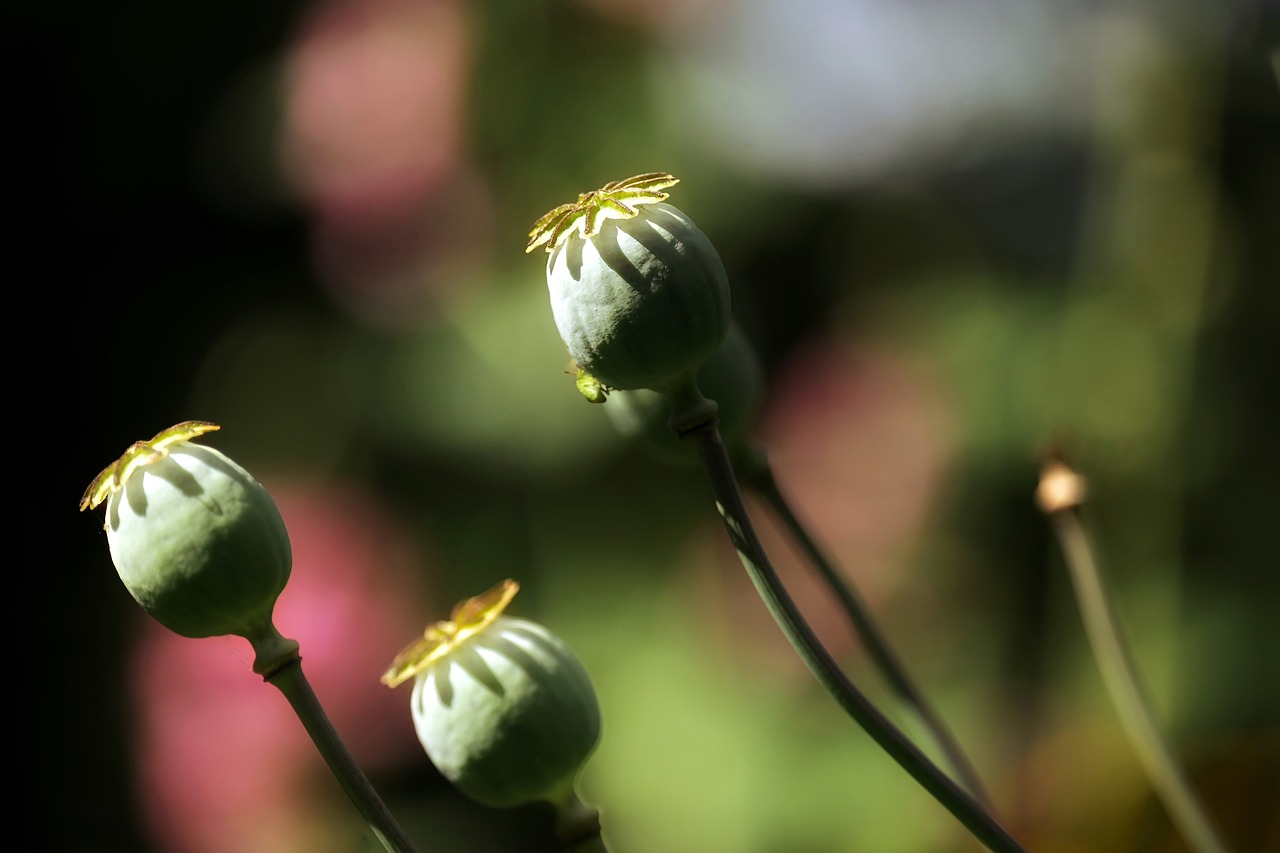
Market Accessibility
When it comes to heirloom seeds, one of the most pressing challenges is . Imagine you’ve spent years nurturing a unique variety of tomato that bursts with flavor and history. You know it’s special, but getting it into the hands of consumers can feel like climbing a mountain without a rope. Many farmers who grow heirloom varieties face significant hurdles in accessing markets that value their produce. This can lead to a frustrating cycle where the hard work and dedication put into cultivating these seeds do not translate into fair compensation or visibility.
One major issue is the competition with hybrid varieties. These hybrids are often marketed aggressively, backed by large corporations with substantial resources. They dominate supermarket shelves and consumer awareness, making it difficult for heirloom seeds to shine. This is especially true in urban areas where consumers may not even know what heirloom vegetables are, let alone appreciate their unique qualities. The result? Farmers are left with beautiful, nutrient-rich crops that go unsold simply because they lack the marketing muscle of their hybrid counterparts.
Furthermore, there’s the problem of distribution. Many heirloom farmers are small-scale producers who lack the logistics to reach broader markets. They might sell at local farmers' markets or through community-supported agriculture (CSA) programs, but these avenues often have limited reach. Without partnerships with larger distributors or grocery chains, these farmers struggle to make their mark. It’s like trying to shout in a crowded room—no one hears you over the noise of bigger players.
To tackle these challenges, collaboration and education are essential. Farmers can band together to create cooperatives that pool resources for marketing and distribution. This collective approach not only helps in reducing costs but also amplifies their voice in the marketplace. Additionally, educating consumers about the unique benefits of heirloom seeds can create a demand that encourages retailers to stock these varieties. Imagine a world where a simple trip to the grocery store includes a vibrant display of heirloom produce, each with its own story and flavor profile.
Ultimately, improving market accessibility for heirloom seeds is crucial for their survival. It’s not just about preserving flavors and traditions; it’s about ensuring a sustainable future for agriculture. By fostering an environment where these seeds can thrive commercially, we can support biodiversity, promote healthier ecosystems, and create a richer culinary landscape. The journey may be challenging, but with the right strategies and community support, heirloom seeds can find their rightful place in the market.
- What are heirloom seeds? Heirloom seeds are varieties that have been passed down through generations, often prized for their unique flavors and resilience.
- Why are heirloom seeds important? They promote biodiversity, preserve genetic traits, and often require fewer chemical inputs, making them vital for sustainable farming.
- How can I support heirloom seed farmers? You can support them by purchasing heirloom produce, joining a CSA, or advocating for local farmers' markets.
- What challenges do heirloom seeds face? Market accessibility, competition with hybrids, and lack of consumer awareness are significant challenges.
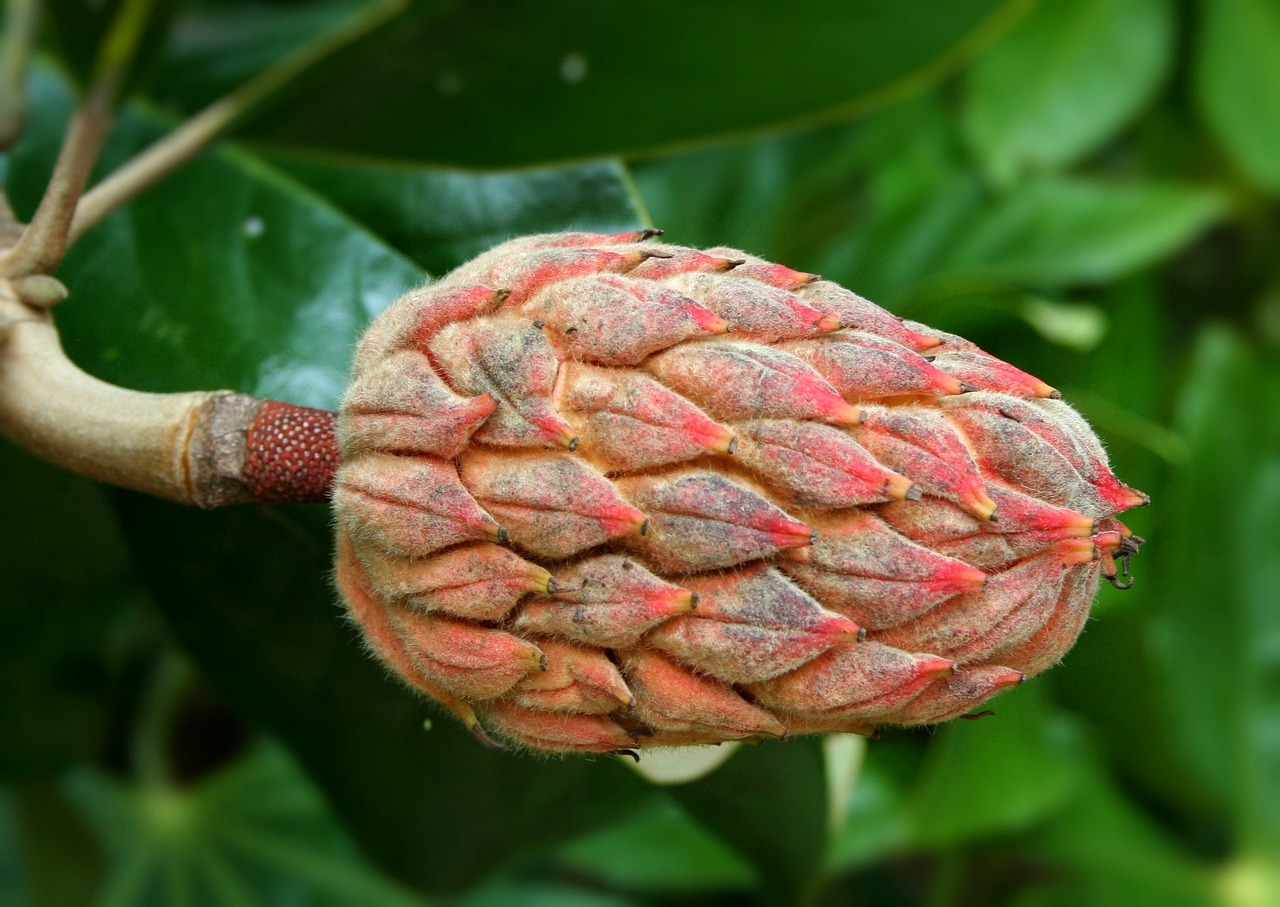
Education and Awareness
When it comes to heirloom seeds, play a pivotal role in their survival and proliferation. Many people are unaware of the rich history and benefits these seeds offer. By learning about heirloom varieties, farmers and consumers alike can make informed choices that support sustainable agriculture. Imagine walking through a vibrant farmers' market, where each stall is bursting with the colors and flavors of heirloom tomatoes, peppers, and beans. It’s not just about the food; it’s about the stories behind each seed, the generations of farmers who have nurtured them, and the ecosystems they support.
One of the most effective ways to spread awareness is through community workshops and local farming events. These gatherings allow farmers to share their experiences with heirloom seeds, discuss their cultivation techniques, and highlight the challenges they face. Additionally, schools and educational institutions can incorporate heirloom seed education into their curricula, teaching students about biodiversity, nutrition, and the importance of preserving genetic diversity.
Moreover, social media has become an invaluable tool for promoting heirloom seeds. Platforms like Instagram and Facebook allow farmers to showcase their heirloom crops, share recipes, and connect with consumers who are eager to support sustainable practices. By utilizing hashtags like #HeirloomSeeds and #SustainableFarming, they can reach a broader audience and inspire more people to consider heirloom varieties in their gardens and kitchens.
To further enhance awareness, we can look at a few key statistics that highlight the importance of heirloom seeds:
| Statistic | Importance |
|---|---|
| Over 80% of the world's food supply comes from just 12 crops. | This indicates a significant loss of biodiversity in our food systems. |
| Heirloom varieties can have up to 10 times more flavor than commercial hybrids. | Flavor is a crucial factor for consumers, making heirlooms a desirable choice. |
| Only 5% of vegetable varieties are commonly grown today. | Preserving heirloom seeds helps maintain genetic diversity and resilience in agriculture. |
Ultimately, the journey toward greater education and awareness about heirloom seeds is a collective effort. It requires the involvement of farmers, consumers, educators, and advocates. By fostering a culture that values these seeds, we can ensure that future generations inherit a diverse and sustainable agricultural landscape. So, the next time you’re at the store or farmers' market, consider asking about heirloom varieties. You might just discover a new favorite flavor while contributing to a more sustainable future!
- What are heirloom seeds? Heirloom seeds are open-pollinated seeds that have been passed down through generations, often prized for their flavor and adaptability.
- Why are heirloom seeds important? They contribute to biodiversity, offer superior taste and nutrition, and require fewer chemical inputs, promoting sustainable farming practices.
- How can I get heirloom seeds? You can find heirloom seeds at local farmers' markets, specialty gardening stores, or online seed companies that focus on sustainable practices.
- Can I save seeds from heirloom plants? Yes! One of the great benefits of heirloom seeds is that they can be saved and replanted year after year, maintaining their genetic traits.
Frequently Asked Questions
- What are heirloom seeds?
Heirloom seeds are seeds that have been passed down through generations, often for at least 50 years. They are open-pollinated, meaning they can be saved and replanted, allowing farmers and gardeners to cultivate unique varieties that have been adapted to local conditions.
- Why are heirloom seeds important for biodiversity?
Heirloom seeds play a crucial role in maintaining biodiversity in agriculture. By preserving a wide range of plant varieties, they help create a resilient ecosystem that can better withstand pests, diseases, and changing climate conditions.
- How do heirloom seeds benefit the environment?
Heirloom seeds often require fewer chemical inputs compared to hybrid varieties, promoting environmentally friendly farming practices. This not only benefits soil health but also reduces pollution, making agriculture more sustainable.
- What are the nutritional benefits of heirloom seeds?
Many heirloom varieties are celebrated for their superior flavor and higher nutritional content. This makes them a preferred choice for consumers who value taste and health in their food.
- What challenges do heirloom seeds face?
Heirloom seeds encounter several challenges, including limited market accessibility and competition from hybrid varieties. These factors can threaten their cultivation and availability, making it essential to support heirloom farming.
- How can I support heirloom seed preservation?
You can support heirloom seed preservation by purchasing heirloom seeds from local farmers or seed companies, participating in community gardens, and advocating for sustainable agriculture practices that prioritize biodiversity.
- Are heirloom seeds more expensive than hybrid seeds?
Heirloom seeds can sometimes be more expensive than hybrid seeds due to their limited availability and the care taken in their cultivation. However, many gardeners find that the unique flavors and resilience of heirloom crops justify the cost.
- Can I save seeds from heirloom plants?
Absolutely! One of the best features of heirloom seeds is that they are open-pollinated, which means you can save seeds from your harvest to plant in future seasons, ensuring a continuous supply of your favorite varieties.
- How can I learn more about heirloom seeds?
To learn more about heirloom seeds, consider visiting local farmers' markets, joining gardening clubs, or exploring online resources dedicated to heirloom gardening. There are also many books and documentaries that cover the topic in depth.



















